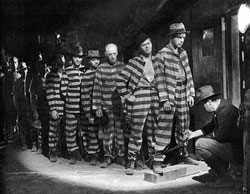 Do you own an optical business? Or does your optical business own you? I have long subscribed to the belief that entrepreneurs should work on their business not in their business or at least spend more of their time on the former, so they can have their business working for them instead of the other way around. Too often, small-business owners get so bogged down in day-to-day activities, that the business ends up running their lives instead of enhancing them, ultimately leading to the loss of the joy the owners found in the activity that inspired them to start the business in the first place.
Do you own an optical business? Or does your optical business own you? I have long subscribed to the belief that entrepreneurs should work on their business not in their business or at least spend more of their time on the former, so they can have their business working for them instead of the other way around. Too often, small-business owners get so bogged down in day-to-day activities, that the business ends up running their lives instead of enhancing them, ultimately leading to the loss of the joy the owners found in the activity that inspired them to start the business in the first place.
Last week I finally started reading The E-Myth Revisited: Why Most Small Businesses Don't Work and What to Do About It by Michael Gerber. Originally published in 1981 and republished 2004 with the Revisited title, The E-Myth Revisited is one of the more highly regarded small business books in recent years. If fact, The E-Myth Revisited still holds the number one spot on amazon.com in the entrepreneurship category. While much of the value in E-Myth can be gleaned from the first few chapters and must be noted that it is part of a line of products and consulting services, Gerber makes some striking observations that are so obvious, yet so thought provoking, the book could very well change the way to think about your business and your life, particularly if your business is your life.
Gerber begins with the idea that most small businesses fail because they are started by technicians; people that do a job whether they be electricians, opticians, optometrists, or sales people. These technicians are good at what they do, love what they do, and think they would rather do it for themselves instead for someone else, so they start a business. This is the entrepreneurial myth or E-Myth; the notion that if an individual is a master technician, he is automatically qualified to build a successful business around his skill. Of course, anyone who has given it the least amount of consideration knows there is much more to a business than the product or service it provides. However, Gerber goes on to state that anyone starting a business has within him no less than three competing personalities, one of which is likely to be dominant over the others:
The Technician – the doer or the worker bee
The Manager – the person who ensures the work is done efficiently, consistently, and on schedule
The Entrepreneur – the visionary, the person who imagines what the business can be and what direction the business should be going
In order for a business to succeed, all three roles must be treated equally. When technicians start a business, they tend to focus almost entirely on the product or service not always realizing that the purpose of the product or service, how it is presented, and how it benefits the consumer are even more important to the life of the business than the product or service itself. Moreover, the technician knows that no one can do the work better than he can and will often refuse to delegate the responsibility to others for that reason. This level of control can work in the beginning phases of the business and may even be necessary; however as demand increases, the effort and time required of the technician grow. Through enthusiasm, passion, or sheer will, the technician may be able to keep up with the demands of the growing business for a period of months or even years. However, at some point, the demands usually take their toll, the passion is lost, and the technician finds himself enslaved by his business, more miserable than he was when he was working for “the boss.”
Gerber suggests the way to avoid this trap is to think of your business as if you were building a franchise, or a turn-key operation; a business you could hand over to someone else and it would continue run as if you were running it yourself. Envision your business the way you would like it to be, define in detail all the roles required to operate the business (even if you don’t have the personnel to fill the roles). Create and document processes and systems to ensure consistent and superior results while minimizing the skill required by people who will ultimately perform the various roles. Continue to step back and focus more on working on your business than working in your business.
